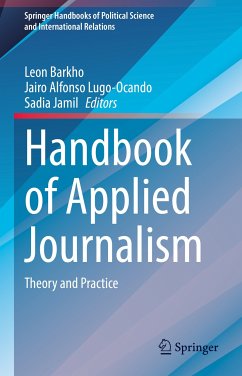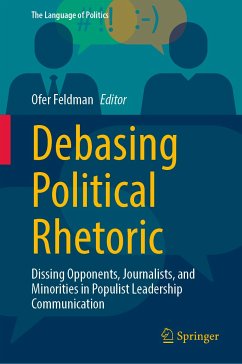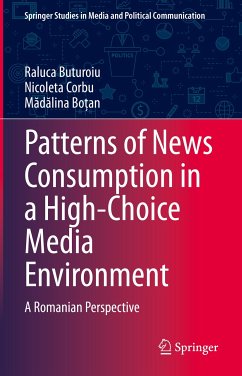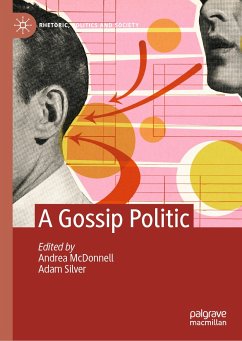
Adversarial Political Interviewing (eBook, PDF)
Worldwide Perspectives During Polarized Times
Redaktion: Feldman, Ofer
Versandkostenfrei!
Sofort per Download lieferbar
112,95 €
inkl. MwSt.
Weitere Ausgaben:

PAYBACK Punkte
56 °P sammeln!
This book presents a collection of studies on political interviews in a variety of broadcast media worldwide. Following the growing scholarly interest in media talk as a dominant form of political communication in contemporary society, a number of eminent international scholars analyze empirical material from the discourse of public figures and interviewer-journalists to address questions related to the characteristics, conduct, and potential effects of political interviews. Chapters span a varied array of cultural contexts: the U.S.A., U.K., Israel, Japan, Italy, Turkey, Greece, Australia, Ph...
This book presents a collection of studies on political interviews in a variety of broadcast media worldwide. Following the growing scholarly interest in media talk as a dominant form of political communication in contemporary society, a number of eminent international scholars analyze empirical material from the discourse of public figures and interviewer-journalists to address questions related to the characteristics, conduct, and potential effects of political interviews. Chapters span a varied array of cultural contexts: the U.S.A., U.K., Israel, Japan, Italy, Turkey, Greece, Australia, Philippines, Finland, Brazil, Malaysia, Spain, Venezuela, Montenegro, and the European Community, enabling a comparison of the different structures and contents of political interviews in societies from West to East. Authors bring an interest in discourse and conversation analysis, as well as in rhetorical techniques and strategies used by both interviewers and interviewees, from different disciplinary viewpoints including linguistic, political, cultural, sociological, and social-psychological. In doing so, the book develops a framework to assess the extent to which media political interviews and talk shows, and regular news programs, play a central role in transmitting accurate and genuine political information to the general public, and how audiences can make sense of these programs' output.
Dieser Download kann aus rechtlichen Gründen nur mit Rechnungsadresse in A, B, BG, CY, CZ, D, DK, EW, E, FIN, F, GR, HR, H, IRL, I, LT, L, LR, M, NL, PL, P, R, S, SLO, SK ausgeliefert werden.












